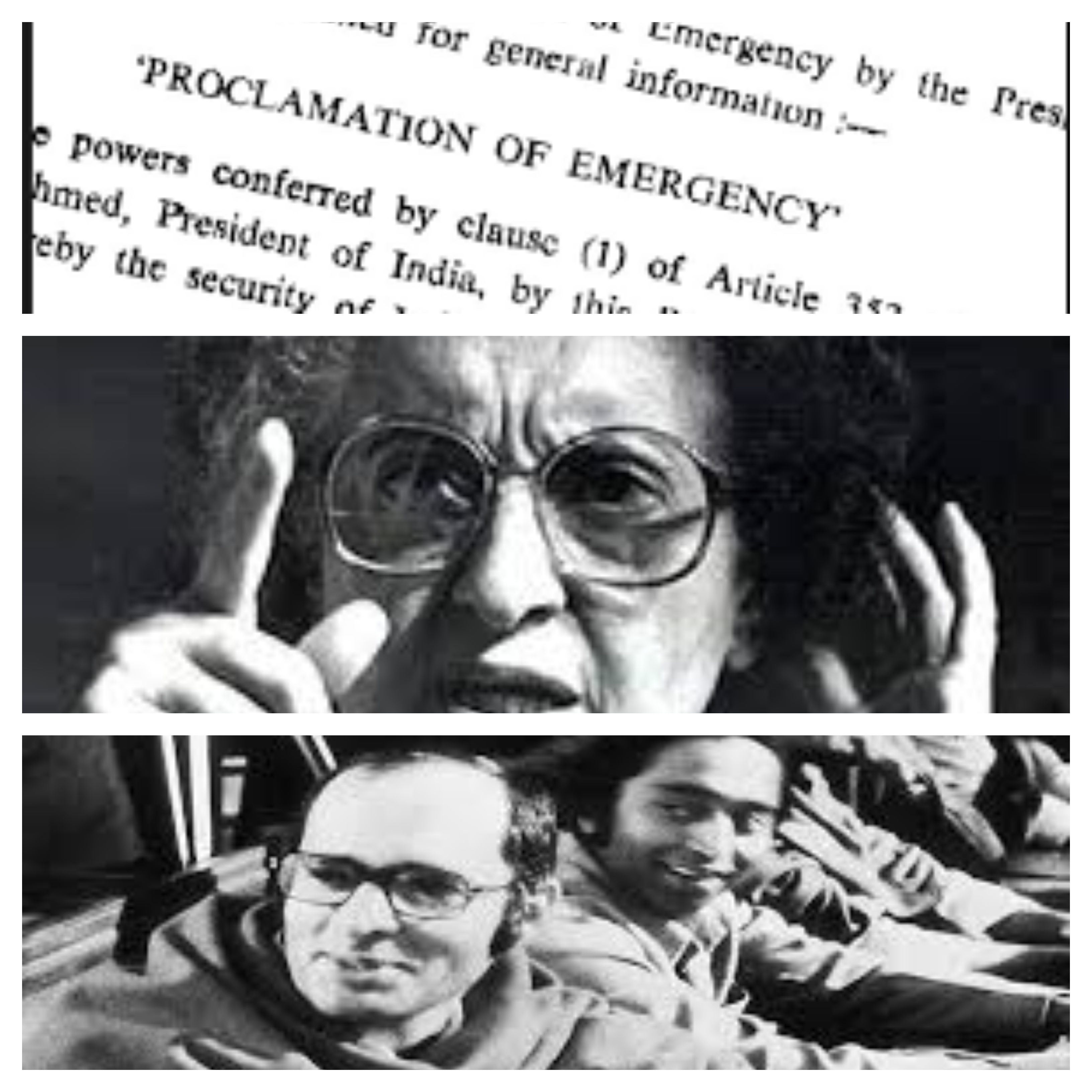

By Our Editorial Team
First publised on 2025-06-25 12:57:51
On June 25, India marks a day that casts a long shadow - a moment when a democratically elected government used its constitutional powers to suspend constitutional freedoms. It is a day that demands remembrance, reflection, and an unwavering resolve to never let such a rupture in democracy occur again.
The Emergency of 1975-77 was not merely an administrative decision - it was a deliberate throttling of the republic's core values. Civil liberties were suspended, political opponents jailed, and the press muzzled. But perhaps most alarmingly, the constitutional government exceeded its mandate and ceded ground to an extra-constitutional authority: Sanjay Gandhi and his charmed inner circle. Without holding any official position, Sanjay and his cohorts wielded enormous, unchecked power - pushing through coercive and often brutal measures like forced sterilisation and slum demolitions, bypassing established institutions and processes. That the state machinery bent so easily to this parallel power structure remains one of the most chilling aspects of the Emergency.
Politicians who dared to resist were imprisoned. The judiciary, barring a few exceptions, capitulated. Large sections of the media crawled. Yet, some brave newspapers held the line - issuing blank editorials, sending their journalists to jail, and refusing to surrender to intimidation. Their defiance became a beacon in a time of darkness.
Today, we must remember not just those jailed leaders but all those who resisted - the lonely student dissenter, the questioning citizen, the steadfast institution that refused to be compromised. The Emergency was a war against this very ecosystem of dissent. It dismantled safeguards, weakened institutions, and instilled fear to cement control.
Fifty years on, symbolic gestures - like a former Chief Justice of India overruling an Emergency-era judgment authored by his father - are notable. But they are not enough. A fuller reckoning is still pending.
Democracy cannot rely only on electoral outcomes. Institutional leaders must carry the burden of upholding constitutional principles. They cannot outsource this duty to 'the people" or reduce it to partisan sloganeering. While the Emergency formally ended in 1977, many of the authoritarian instincts it legitimised still haunt the system - the demonisation of dissent, preventive detention without scrutiny, judicial timidity, media pliancy, and the dangerous tendency to search for "enemies" within.
Yet, this is not the whole story. Democracy has shown resilience. The judiciary has regained some of its independence. Civil society has grown louder. Technology, while creating echo chambers, has also given voice to the silenced. Regional parties have strengthened federalism. Voters from marginalised communities are more politically assertive than ever before.
Still, the risks are real. Hate-driven discourse, disinformation, and institutional erosion threaten the democratic contract. And so, June 25 must not just be a ritual of remembrance - it must be a day of reckoning and rededication. The Emergency is over. But the work of ensuring it never returns is still ongoing. The stain of 1975-77 must remain visible - a reminder of how close we came to losing the very soul of our republic. Let it not fade, lest we forget.











